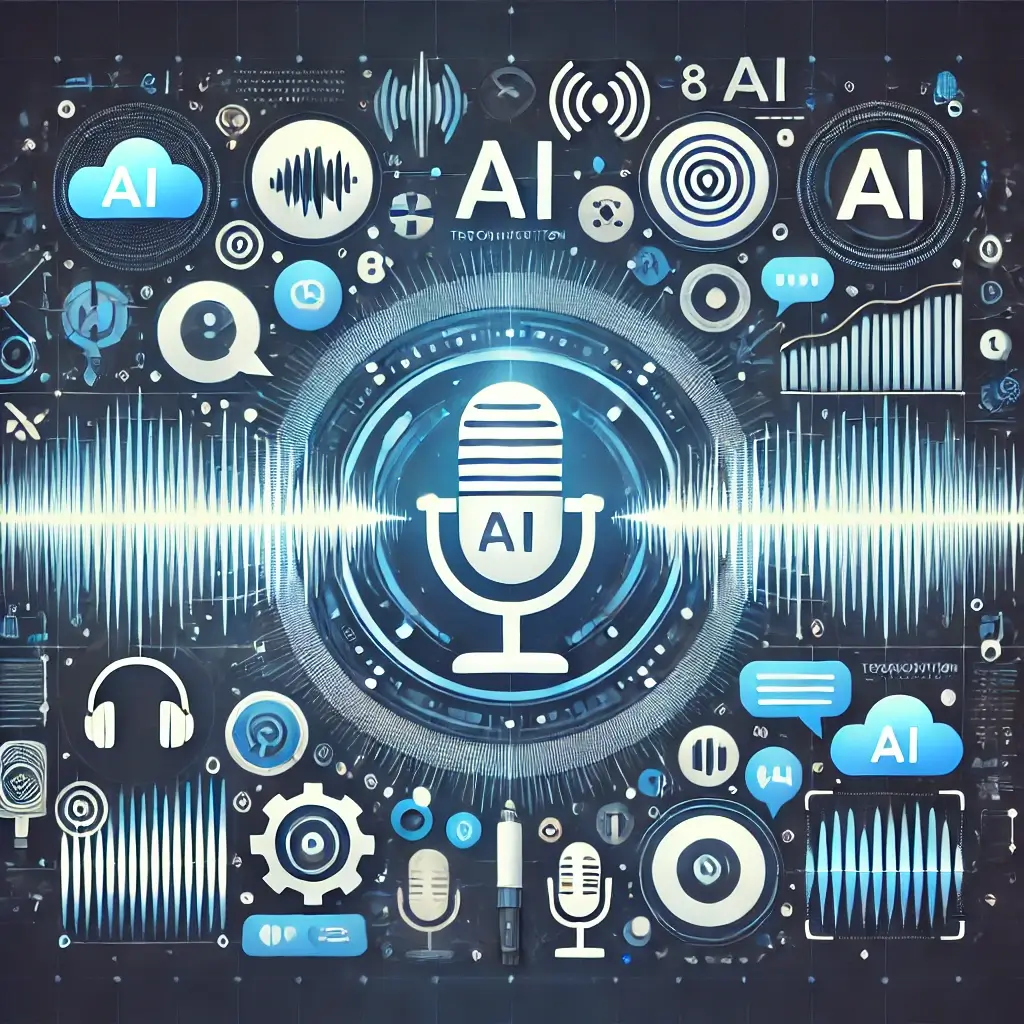AI Tools for Voice Recognition Transcribing audio to text can be an arduous task, yet modern machine learning has automated the process, enhancing both speed and precision. Whether for journalistic research or corporate documentation, verbatim capture of discussions remains paramount. This post profiles eight leading platforms leveraging artificial intelligence to refine transcription results.
Voice recognition systems now parse speech into written words through neural analysis of acoustic patterns across languages and cadences. Ubiquitously adopted for meeting notes, subtitles, and more, such algorithms streamline documentation.
Benefits of AI Transcription Tools
Technological innovations in recognition software heighten efficiency, completing transcriptions far quicker than human counterparts to optimize workflows. Cost-effectiveness likewise appeals – affordable transcription of extensive audio archives. Advanced natural language models now recognize multiple concurrent speakers with nuanced context, surpassing earlier limitations.
Top AI Transcription Tools
1. Otter
Features of advanced recognition engines enhance transcription accuracy.
- Collaborative annotation
- Integration with videoconferencing suites like Zoom
- High calibration for accuracy
Limitations:
- Limited capabilities in the free version
- Occasional errors with intricate accents
Pricing for speech-to-text services:
- Basic selections free of charge
- Premium alternatives start at $8.33 per month
2. Rev
Features of audio transcription tools include real-time speech recognition.
- AI-fueled transcription
- Human transcription services for higher accuracy
Limitations:
- Automated versions may miss subtleties in speech-to-text conversion.
- Limited integration with other tools
Pricing for recognition software services:
- Automated transcription: $0.25 per minute
- Human transcription: $1.25 per minute
3. Descript
Features:
- Combination of audio and video editing with transcription
- High accuracy with advanced tools
Limitations:
- Steep learning curve
- Higher investment for full features in automatic speech recognition tools.
Pricing:
- Free version with limitations
- Paid plans start at $12 per month
4. Sonix
Features:
- Translation into multiple languages
- Automated transcriptions and subtitles
Limitations:
- Higher costs for long recordings or large projects
- Occasional configuration issues
Pricing:
- $10 per hour of transcription
5. Temi
Features:
- Easy usability
- Fast response times
Limitations:
- Lacks advanced features
- Variable quality depending on the original recording
Pricing:
- $0.25 per minute
6. Trint
Features:
- Digital transcription and robust editing tools
- Collaboration features for group projects
Limitations:
- Higher learning curve
- Premium features are expensive
Pricing:
- Automated transcription: $0.20 per minute
- Professional services: €1.70 per minute
7. Happy Scribe
Features:
- Automated and professional transcription
- Supports multiple languages and export options
Limitations:
- Higher costs for professional transcription
- Challenges with technical jargon in speech recognition.
Pricing:
- Automated transcription: €0.20 per minute with basic speech recognition.
- Professional transcription: €1.70 per minute using advanced voice recognition software.
8. Speechmatics
Features:
- Real-time transcription with high accuracy
- Supports a broad range of languages and dialects
Limitations:
- Can be expensive
- Requires technical preparation for advanced features
Pricing:
- Tailored to utilization and specific needs
Selecting the Right AI Transcription Tool
When choosing an AI transcription tool, consider the following:
- Accuracy: Look for tools that handle various speakers and specialized language well.
- Pricing: Assess your budget and compare cost-effectiveness.
- Features: Identify essential features like real-time transcription or multilingual support.
- Integration: Ensure compatibility with existing software and workflows.
Best Practices for Accurate Transcription
- Clear Audio: Ensure recordings are free from background noise.
- Multiple Speakers: Use tools that differentiate between speakers.
- Regular Updates: Choose tools that are frequently updated to improve speech recognition capabilities.
- Avoid Common Errors:
- Ignoring Speaker Labels in audio transcription can lead to confusion. Properly labeling speakers enhances clarity in audio transcription.
- Overlooking Formatting in voice recognition software results in poor output. Attention to punctuation and formatting in speech-to-text ensures readability.
- Neglecting Proofreading: Meticulously proofread the final transcription to catch any errors.
Conclusion
AI-powered transcription tools have entirely transformed the way we convert spoken dialogue into written text. By selecting the right tool and following best practices, you can achieve high accuracy and efficiency in your transcriptions. Whether you’re searching for an affordable option or the ultimate in accuracy, there’s an AI transcription tool to meet your needs.
Industries including media, legal, healthcare, and business can greatly benefit from AI transcription due to the enormous volume of audio content requiring transcription. The capability to quickly and easily transcribe interviews, meetings, medical appointments, court hearings, and more allows professionals to focus on more meaningful work.
Read More > Top 10 Personal Finance Apps to Manage Your Money Effectively
Read More > 10 Best Credit Card Providers with Rewards and Benefits
Read More > Financial Forecasting in the Age of AI: 10 Essential Tools
Read More > The Essential Guide to Small Business Insurance Requirements

